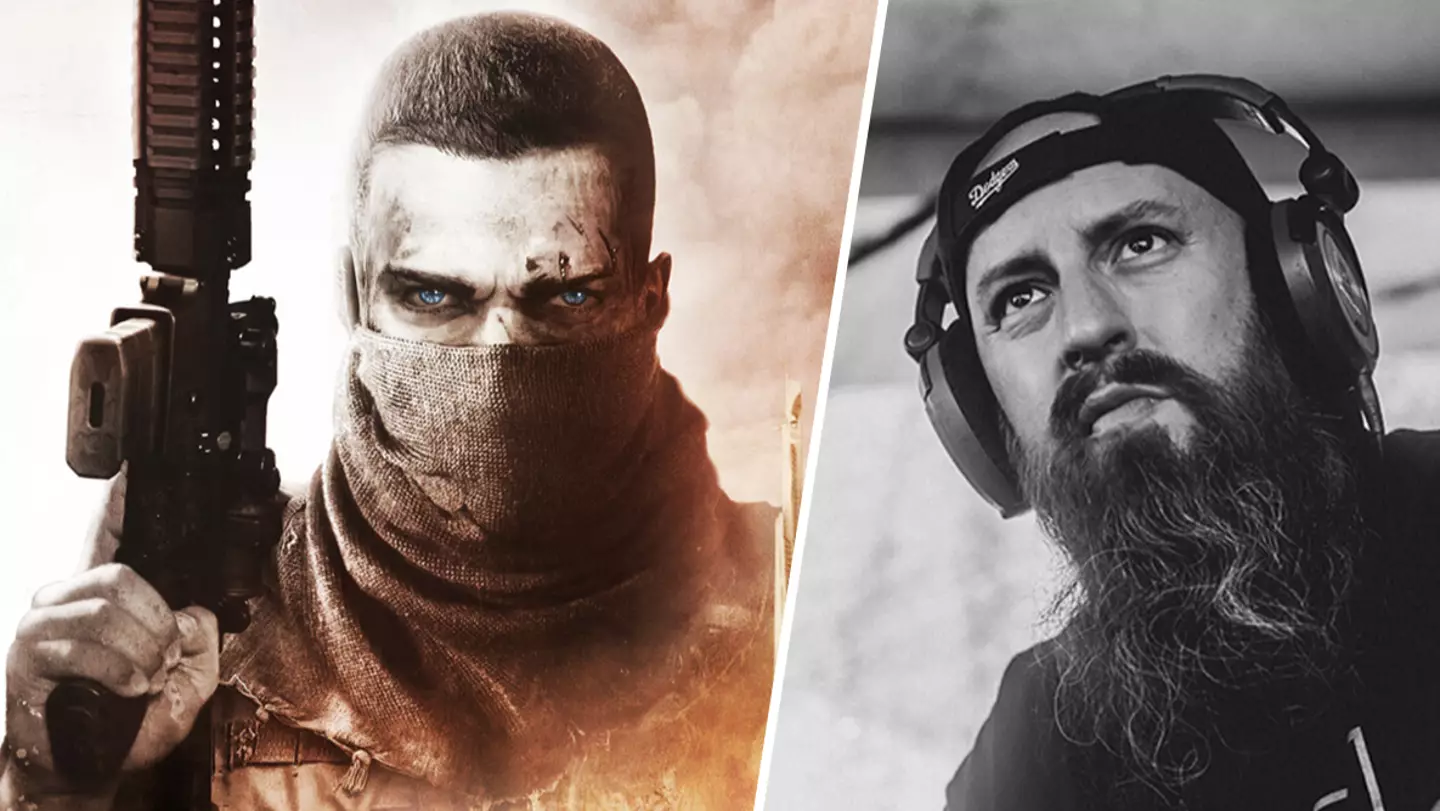
This year, Spec Ops: The Line celebrates its 10th anniversary. Yager Development’s mind-bending third-person shooter released to less-than-stellar reviews back in 2012, but went on to achieve status as a cult hit thanks to its phenomenal narrative design.
Playing as Captain Martin Walker (voiced by Nolan North), you’re a soldier on a mission in Dubai, which has been virtually buried by unruly oceans of sand. What begins as an apparently generic military shooter experience soon morphs into something much more sobering. Honesty is called into question, and the nature of war is highlighted like never before in a video game, taking inspiration from Joseph Conrad’s Heart of Darkness.
To celebrate this unique title, I sat down with its creative director, Cory Davis, to discuss the making of Spec Ops: The Line, its impact, and the remaster it so thoroughly deserves.
Advert
Watch the full interview here:
GAMINGbible: Your career has been amazing. We've got video games, and now we have your arthouse game development studio, Eyes Out, which looks more like a kind of artistic exploration project.
Cory Davis: Definitely, it's been a long road for me to get to where I think we're at right now. And also for the whole industry, in terms of the way it's progressed. Since I was a little kid, I felt this kind of immense power in interactive experiences, and the way that they can kind of blur the lines between life experience, and something that's just there, prepared for you as entertainment. And so I just feel this power in this medium, and especially when it comes together with music, and interactivity. It kind of creates this synesthesia that I'm really into.
Advert
I love having the chance to dive deep into narrative, especially with the way that the technology has evolved to kind of blend what might be like a filmic type of experience, or a human experience you have in nature and one you have in a video game, and make you question your own reality.
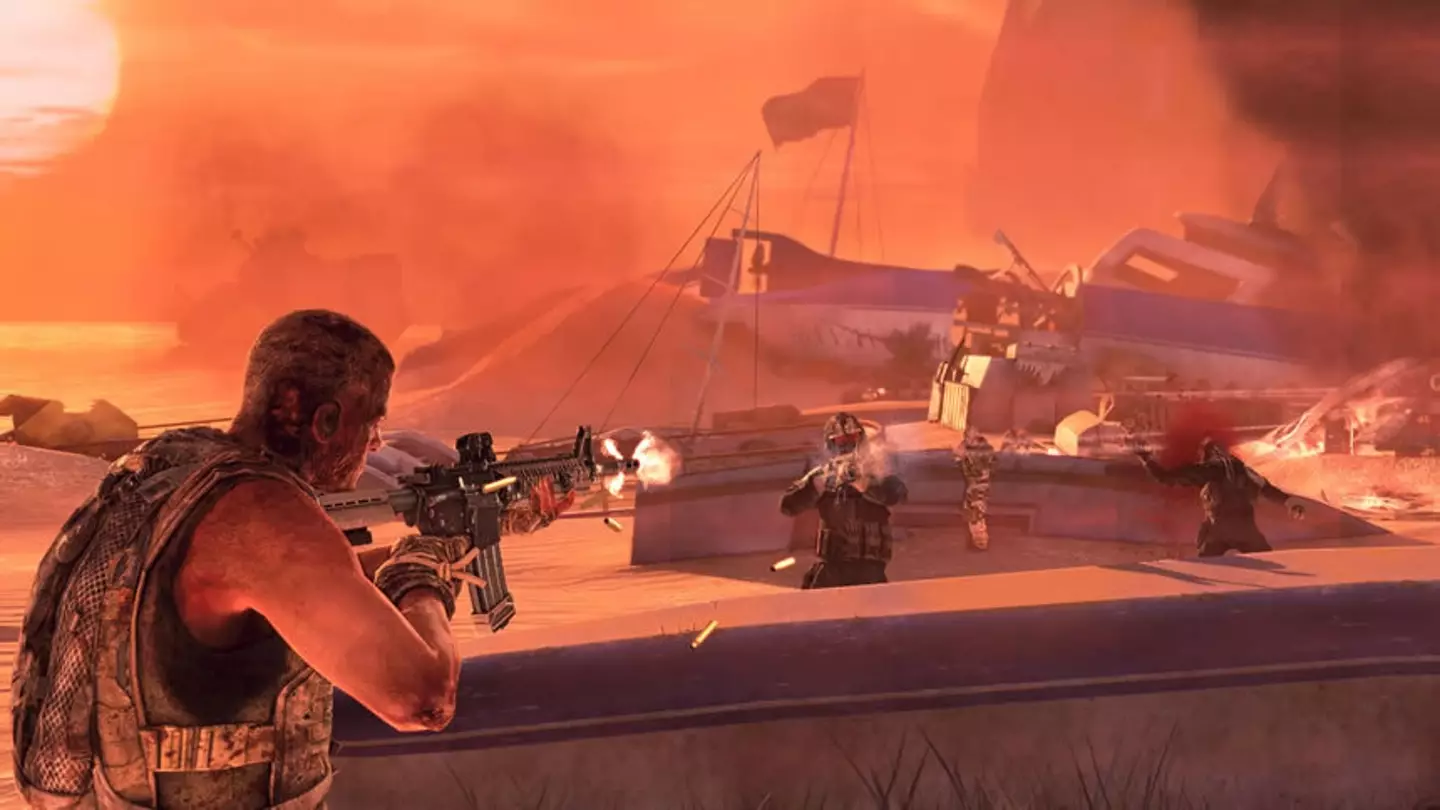
GB: I love games that go that meta level. I wanted to talk to you about an incredible game you worked on, Spec Ops: The Line. That game turns 10 years old this year, and I recently started playing it again. Looking back on Spec Ops, what was your experience working on it? And what does it mean to you now?
CD: Yeah, it definitely holds a really special place in my heart. When I look at everything I've worked on, it was a really unique experience. It was my first time having the opportunity to probably go as far as I wanted to in one direction and on the development side. It was an amazing experience to collaborate with an international group of developers and individuals that had a different interpretation of the things that we were discussing in the game than I had arrived with. It was definitely an enlightening experience.
Advert
It was one that was difficult in many ways. The whole team grew from just a handful of people to, by the time we shipped, more than 16 different nationalities, and we've really gone through a journey together exploring this element of the Heart of Darkness. When I look back, there were difficult times there. There were challenges that we didn't think that we could overcome. There were things that some of us were happy about, more happy about than others, and there was this kind of really healthy debate on the team throughout the project.
That's something that I've taken with me. I feel like the depth and the longevity that's in Spec Ops: The Line blossomed out of that. Active, healthy conversation of respecting one another's perspectives on the team. Also not being afraid to focus on the things that made that experience special, rather than just trying to compete with the other games that might be grouped together with it in the genre.
So when I look back on it, we probably could have made some decisions to have it sell a little bit better out of the gate, or something like that, but that's not what I regret at all. I'm really in love with what we created together as a team, and with all the difficulty that was there. It's still something that I longed for: those characters, those experiences with the team, seeing all that come to life, and then looking back on it now. I love how I feel like I can still immerse myself in that world when I play that game. I'm really proud of what the team did and what we did together.
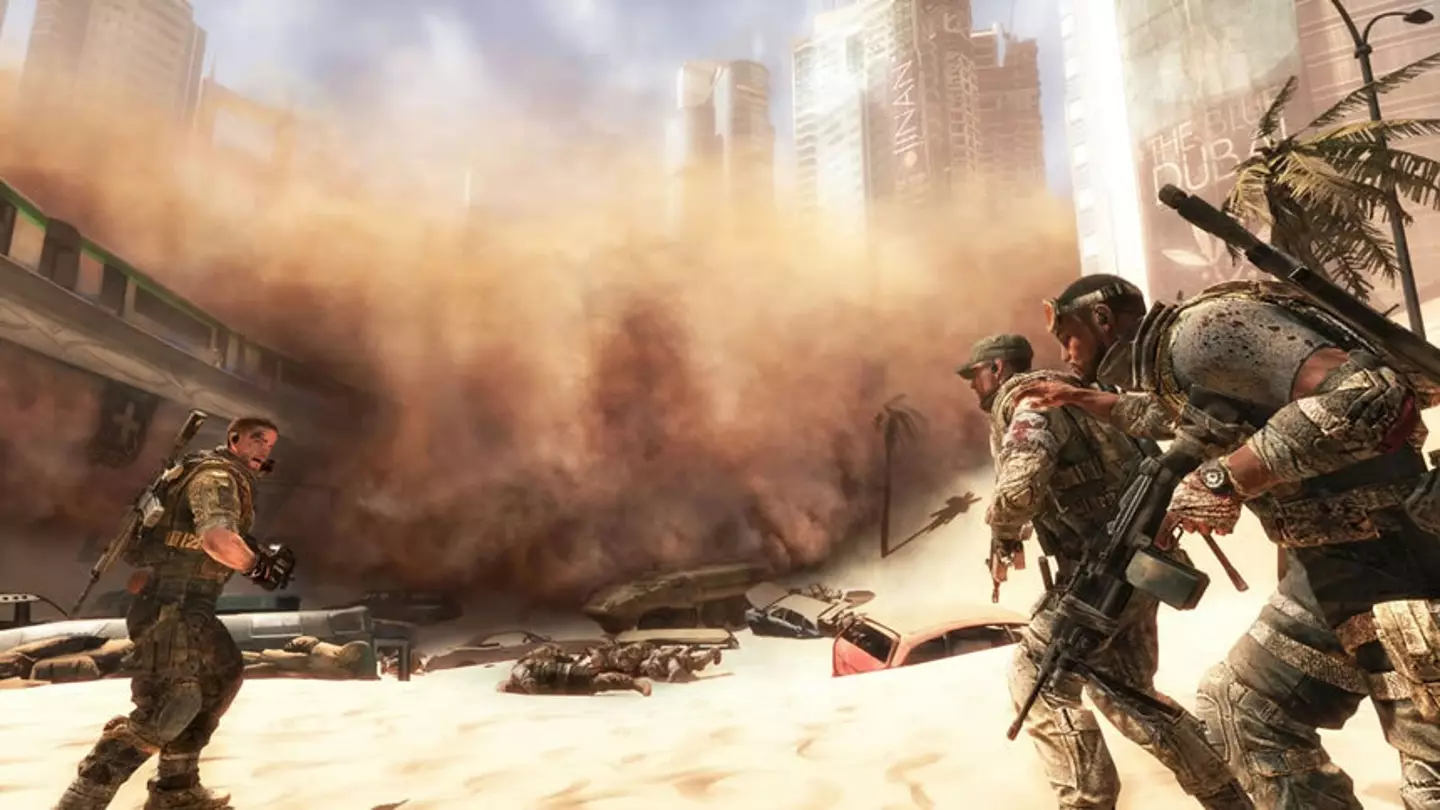
GB: With regards to the immersion, that's what I noticed most when I started playing it again. There's a bit where you’re running and gunning, and Deep Purple starts playing. As someone who knows what I'm in store for here, that was the first sign that it's leaning on parody very early. What was the thinking behind making a shooter game, a third-person shooter game as well, that highlights the problematic elements of a militaristic shooter? What was the initial thinking behind something so ambitious?
Advert
CD: I have to go back, and give some credit to some people, even at the publisher 2K. When I was leaving my work at Monolith, finishing up F.E.A.R. 2, I was brought in to speak with 2K’s Anthony DeLuca (producer) and Greg Gobbi (senior vice president of Product Development), who had been involved with BioShock, and things like that. I could tell from the very beginning that they were invested in a way that most publishers weren't. Willing to take risks, and not just willing, but striving to have their brand speak for more mature, groundbreaking, and sometimes dark experiences. That really clicked with me.
From the first day we spoke with one another, we could both see straight through to where we were headed. I was so inspired that there was this kind of loose framework sitting around. This possibility to invest in a new team and a risky project, and one that allowed us to be honest with our exploration of the Heart of Darkness, and not just think about how it would be marketable or, or how it would line up with the other franchises in the genre.
We had a really strong collaboration from that very beginning moment, and in a way that I was able to get involved in. I moved to Berlin [where Yager is based], and kind of like, set those really strong relationships with the team. I remember my first night in Berlin, I was at a little cafe, with some members of the team, and our lead character artist came up and asked me, “Could this be the first anti-war game?” I remember sitting there, thinking about that, and then there was just kind of this energy around, not just that idea, but this question of what that would mean? And what is war? And how should it be expressed in games? And can games be taken seriously enough to even discuss these things? And should we be anti-war with what's actually going on in the world?
So, these conversations started to take place; and then the history that's there in Berlin, and the very real reasons why they've avoided certain depictions of violence and things like that in their entertainment. Then coming to the realisation that there was this honest approach in this passion from this group, to speak about these things, and to not be bottled up by anyone, you know? Whether it's the public, the publisher, the budget, I think we all kind of started to drift into this understanding that this was a special opportunity.
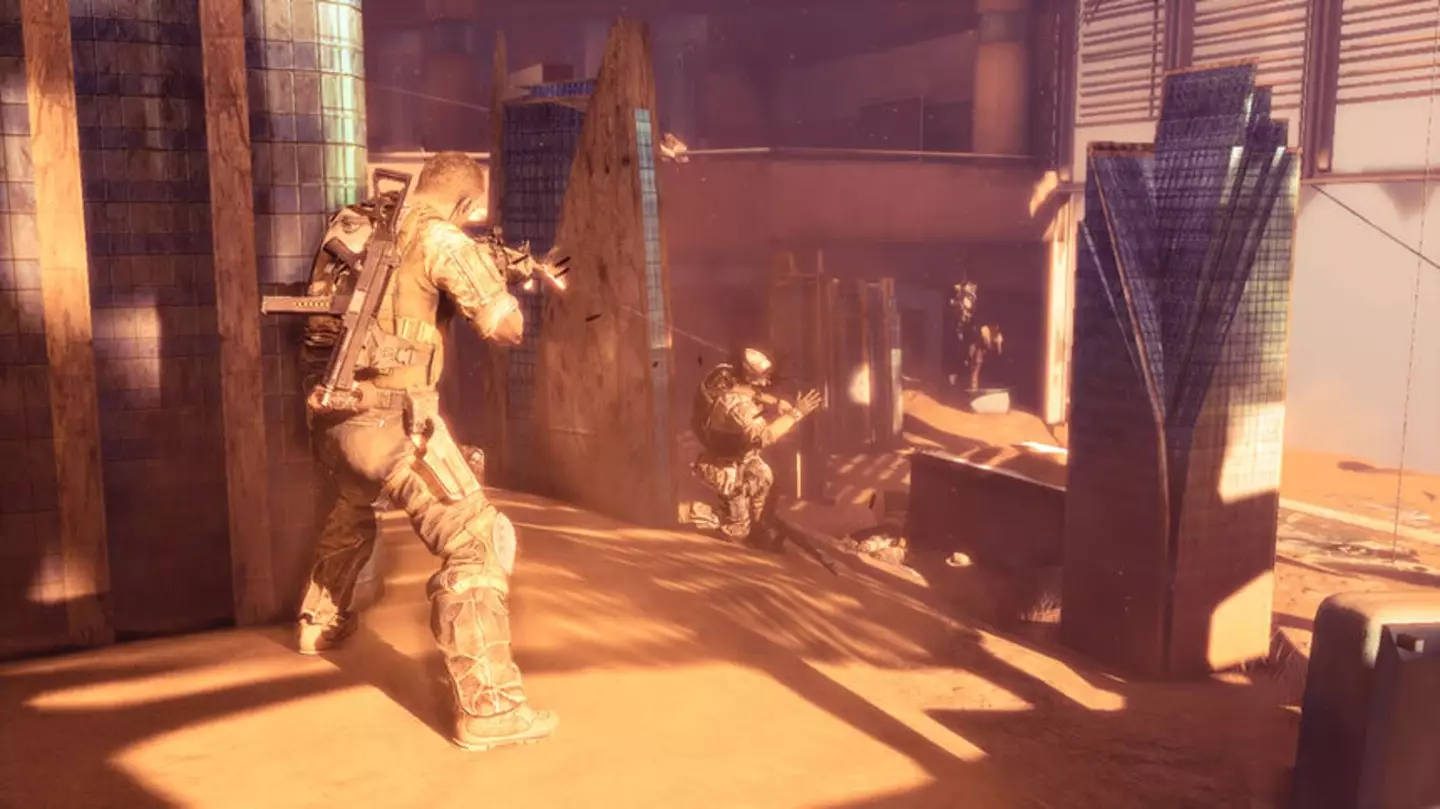
It wasn't easy, but I think we were fortunate to have this particular group of people that are partly from Berlin, and [the rest from] around the world. I think it's representative of the way that people naturally want to approach the things that they're passionate about, and when they're empowered, something really unique comes about. I had in my mind from before I'd ever thought about this project, that delving into the darker aspects of the human psyche, and the question behind the meaning of life - where we came from, why we're here, why we make the decisions we make, the consequences that they have - what are the real ramifications of those?
Advert
I've always wanted to delve into that in games, and this was just the perfect opportunity to do that. We ended up with a really special group of collaborators that jumped over hurdle after hurdle, after hurdle. And even when we had our first reveals in the press they were going, “What is this Call of Duty clone?”
People stuck to the vision, and I have to really credit both Yager Development and those individuals at 2K that were willing to do that.
GB: It's fascinating that you talked about the meaning of life, because one of my favourite parts of the game is the idea that John Konrad (the apparent main antagonist) sort of takes agency away from soldiers. You know, they're just there to fight, and if there's no fight, then there's nothing for them. That's a really blunt portrayal of life being singular in its focus, and I like how Walker never completely follows that path. Like, you still can be individual and that ties into the freedom of choice bit of the game, which I love. Especially because early on, I don't think I was aware I was making choices sometimes. It's incredible in that respect. But one thing I do notice about that is, did you ever worry that maybe people didn't quite pick up on it? That people might not have instantly picked up on the core message of forensically examining what war really is?
CD: I mean, your experience is definitely one that I've heard other people talk about as well, where the game kind of snuck up on them, and surprised them. That's both intentional and something that we kind of discovered along the way, as well.
For us, was this an anti-war game? What does that mean? What is war? And how do I relate to these decisions I'm making? For me personally, one of the reasons why it's so powerful is because it's not something that most people knew they were signing up for. It was something that was talked about a lot in the press, but also all the other games that were coming out around the same time were also talking about it, they just didn't do a lot of it.
There was a lot of doubt, actually, when I would go in and show a portion of the game, or discuss it with different journalists before it came out. There was like an eye-roll, almost. We would discuss these things, but they really couldn't have imagined how invested we were until they got, you know, an hour or two, or sometimes even a little further into the experience, when they realise, “Oh my god, I’ve got all this blood on my hands.”
I think it also relates back to the experience that, as we've done our research, that a lot of soldiers have as well. Like, the way that propaganda portrays war. It typically looks like something that is not only justified, but could be very enjoyable. The way I see it pitched all the time is that this is more exciting than the thing you're probably doing right now, and, you know, to young people, that may or may not get involved with these conflicts.
As we started to talk with people that have been in these types of horrible scenarios, just coming to the realisation that they are a lot like you and I, and a lot of them ended up in these situations because of, you know, circumstances, or because of decisions they made to do something adjacent. Then others were just enticed by this adventurous kind of possibility that might be there. Then others, you know, genuinely because they feel this sense of patriotism, or this desire to protect the things their forefathers and mothers had established.
So I think I probably just drifted off the question somewhat, but we did. When I look back on it now, it's one of the things that I really love about it, that we didn't kind of ram that stuff down your throat. We let you tiptoe into it. And little by little, you fall down the rabbit hole.
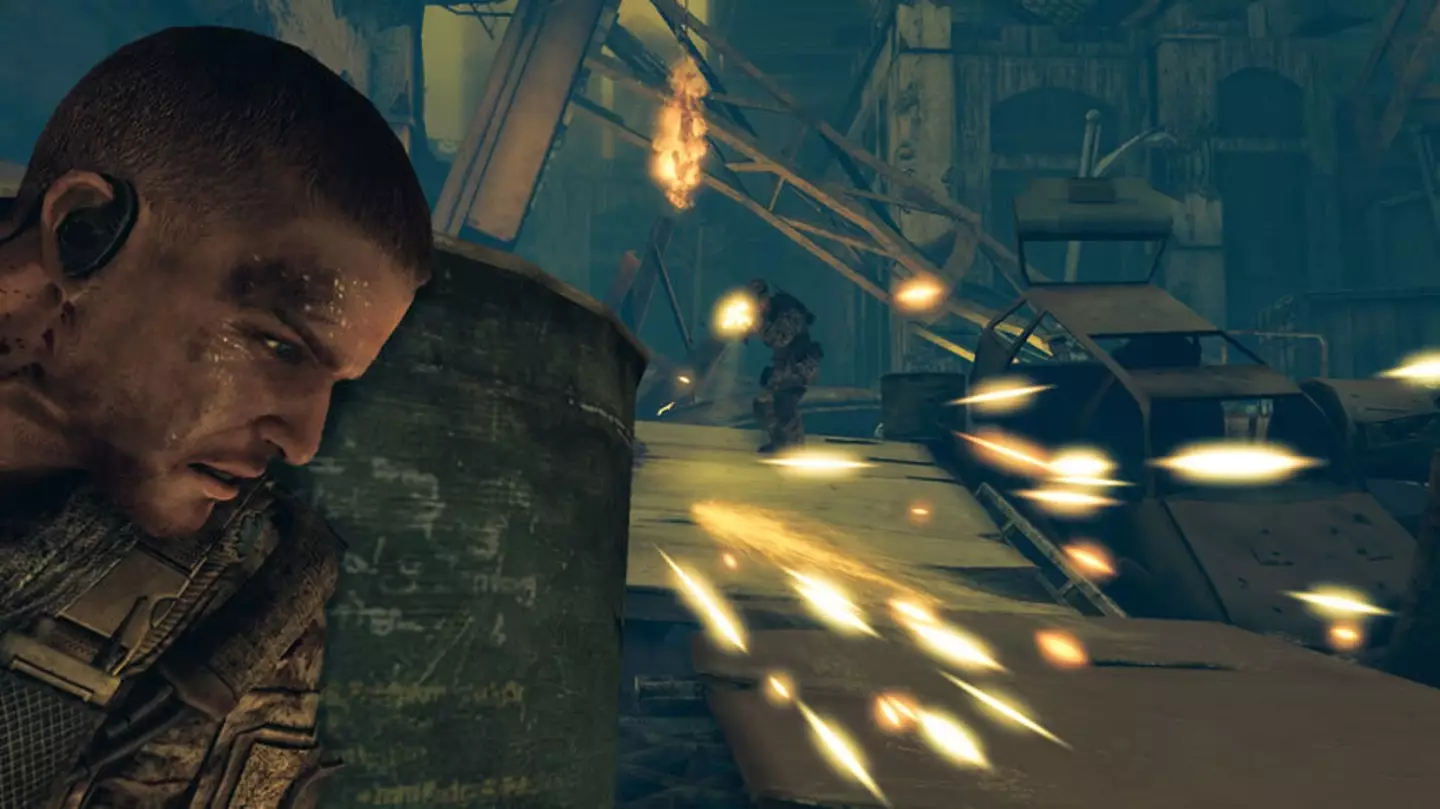
GB: Yeah, I don't feel the game encourages me to go one certain way, and it does leave it open. That's very, very interesting as well, what you're saying about the kinds of people who, maybe this is the wrong word, but might be susceptible to propaganda. Here in the UK, there's this insufferable TV advert - whether you like the military or not - where it shows a young man from a sort of less focused-on region. He talks about how, by joining the Royal Navy, he was able to learn things that he never would have done back home. It shows him walking through Japan, which of course, you do get, surely, in the Navy. So, of course, that is completely possible, you know, it does exist, but there's a lot more to that.
I think Spec Ops: The Line, as a video game and part of the reason why it touched me so strongly when I was younger, is because I was caught out. It really sort of makes it clear what's going on, and that, unfortunately, is something that will always be relevant: soldiers not understanding the situation they're in. I mean, we're seeing it now without going into too much detail…
CD: Ending up in impossible situations, too, where there really is not a good outcome.That's the most horrific thing that I can imagine as a decision maker. We're willing to place young individuals into those scenarios, a lot of times without a thought. We're seeing it right now, today, with what's happening in Ukraine and in Russia. I, I just… my heart is torn just seeing some of the reactions of both sides that are brothers and sisters, essentially; who have - for any number of reasons - ended up facing down each other. I just can't imagine what that's going to do to a lot of those that are involved and affected by it.
GB: With regards to that, when we reach the reveal of the game, we see that Konrad is no longer there and, to put it briefly, realise the fact that Konrad, shall we say, took his own way out. Is that Spec Ops: The Line openly calling out the people in charge of militaries for being hypocritical?
CD: Yeah, I mean, I think you could say that. There's good and bad of every position that someone might feel in any organisation, but this particular situation has ramifications. We're saying that puts a lot of vulnerable people into the meat grinder. Argue all you want about how justified it is - it's not typically those people that sacrifice themselves that are the ones that benefit the most off of it. So, it's not meant to call out a specific political leader or something like that. To me, it was always a statement that this kind of like, honourable, attainable, morally justified thing that Walker was going after was a delusion. Konrad himself is a symbol of that, and it's like we can lead ourselves into horrible situations, into making horrible decisions when we have these types of delusions.
It's really hard to break free and kind of take a step back, and look at the thing from a mature and honest perspective. But those people that are in charge, they are in charge of some of the most wonderful, intelligent, youthful, full-of-potential individuals on the planet. So I really feel for them. It just ties right back to that propaganda conversation. Like, I remember playing America's Army [the military multiplayer shooter series], for example, and just realising that I couldn't play on the bad guy team. The way that it kind of could - as a young person - give you the impression that certain types of people deserve certain treatment, or are justified in our actions.
These are all things that we argued about and debated a lot on the team. Like, how do we portray these things without them becoming just gratuitous? And, you know, off-putting and insulting, but in a meaningful way?
GB: Well, that is one of the heavier things about the game and, of course, a heavy part of reality. I tried to explain Spec Ops: The Line to a friend years ago, who'd never played it, and I said, you take Call of Duty and Battlefield, and they’re very much like, “What if war was fun?” They are. No matter what you think of the story, that's what they are. And I said, “Spec Ops: The Line is like, what if you had to clean up the fun afterwards?” You know, and he just went “Oooh,” and then he went and played it that weekend, and he was like, “This game is amazing!”
So that's kind of it really. Spec: Ops The Line feels more cerebral in many senses. Not just the inner workings of mankind, the real reason is war, is it ever justified? Even straight away in Spec: Ops The Line, you're shooting at enemies - you don't really know who they are, and they don't really know who you are. It's just, “There's someone here, let's shoot!” And yet, despite that - how obvious that is - everyone I know still fell for the plot twist of the reveal. I have to ask you, Cory, how did you do it? How did you pull the wool over all of our eyes so effectively?
CD: Oh, man! It's definitely an element of focus. I remember the flight over to Berlin for my interview, even. Just the understanding of the potential, and the fact that if we tried to do everything we were going to lose out on this one special thing that we're still talking about.
So there was an effort from the very beginning for me to try and make sure that everyone who was a stakeholder, and all of the developers, understood that if we beat Call of Duty on their shooting mechanics, we have not succeeded. If we cut out the soul of this conversation, in order to surpass another game’s feature set, we will completely be dead in the water, because they've all been doing this for ages.
It’s a lot easier to make guns really fun to shoot and make them super satisfying to destroy things with. It's one of the most tactile and powerful things in games. Just that pointing of that analogue crosshair, and actually having the ability to reach out and touch something in the world, and having instant reaction to that. Being able to judge your skill on things like that.
No matter how much we nailed that, I knew that I would be disappointed, and the game would probably not be thought about on its 10 year anniversary. So it was taking the long view from the beginning. There were a lot of fights along the way, covering everything from flamethrower discussions, to should this game be on the Kinect, to multiplayer - and you've probably heard the conversations about multiplayer - but [we hung onto] this idea that we've got to understand what makes this thing worthwhile.
The glorification, and adding fun to a wartime experience, just wasn't the goal of anybody on the team. I would say that the Germans on the team really brought this element of like, if we're going to have violence, it's going to be there for a reason. That's something that I wanted, but they never let me step back from that for a moment. The way that they stuck to their guns - no pun intended - was amazing. People willing to walk out on the project if it became just a kind of glorification of war, or some sort of war porn.
Really, every day, the team being invested in what was going on in both Iraq and Afghanistan, and in other regions of the world, and in historical conflicts… That stuff was with us in all of our conversations. And so, I think that taking that kind of high-level focus, and then holding onto it as tight as we could, and then having this team really fit with this concept. It was amazing.
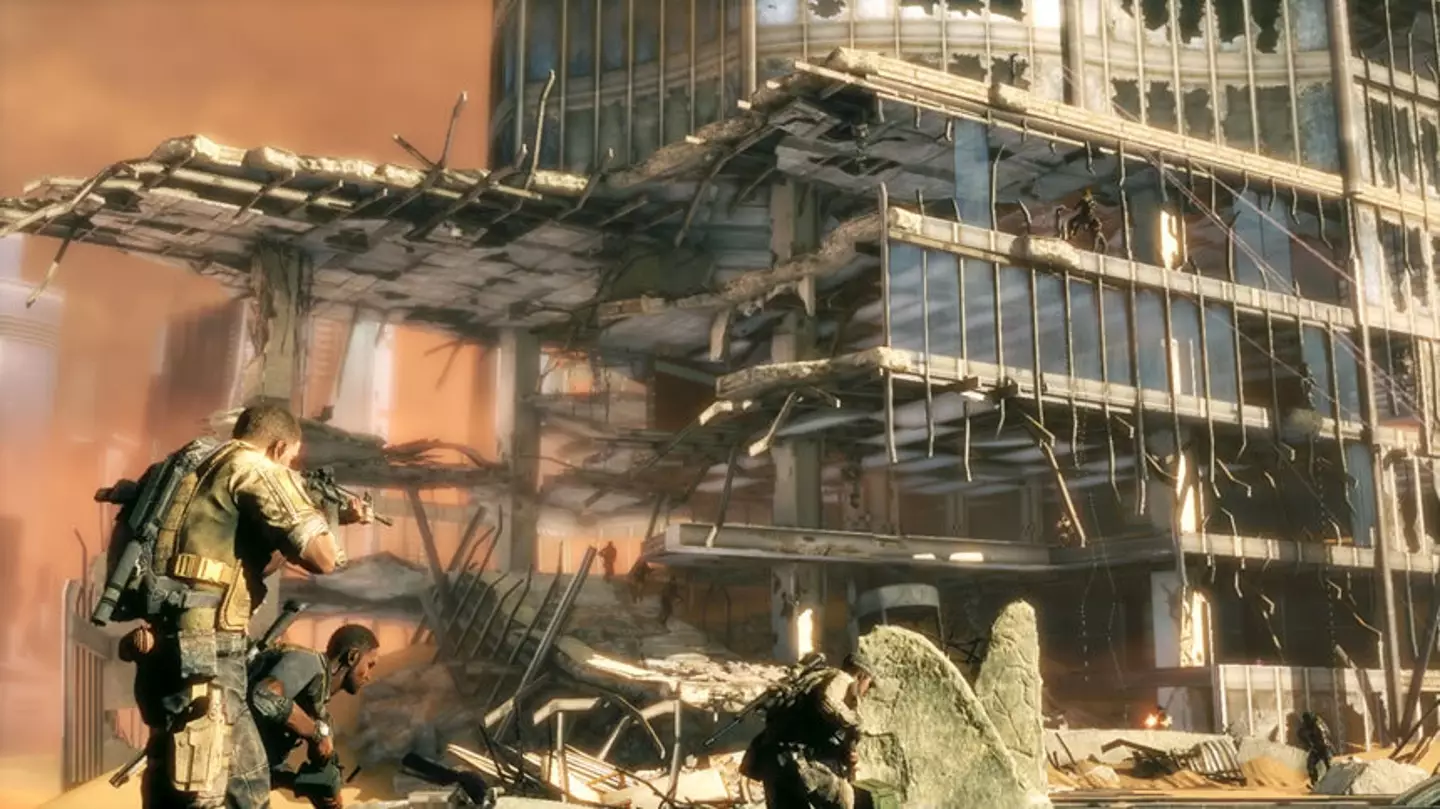
GB: In terms of gameplay mechanics, I first played it years ago and I thought it was great. Looking back now, it still feels satisfying to play. It's visceral, until you realise that you sort of feel guilty for how visceral it is. Like, the third time you shoot those windows out and an enemy gets covered in sand, you do feel all, “I'm a monster” - as intended, of course.
The thing about the game is that I still think it's as relevant now as it ever was. It genuinely is a perfect example of war in a fictional sense. And so, for me, I find it odd that it's not more readily available. Now, you can play it on Xbox via backwards compatibility, you can play on Steam, but it’s not all that easy to get hold of - which is odd since it was so critically acclaimed. Maybe there were other areas where perhaps it could have excelled more, but it feels like the kind of game that if it was remastered now, it would still have an audience of people who just click with that story like nothing else, you know? Would you want to see Spec Ops remastered, or remade even?
CD: Totally. And, I don't work with 2K so I'm not afraid to say this: there's a lot of people at 2K that would as well. It's something that there was a lot of competition over, between the developer Yager and 2K, who owns the Spec Ops IP.
There were, on the business side, things that I wasn't involved with that ended up with Yager and 2K not wanting to work together after the project, and there were conversations about additional campaigns. There were conversations about full sequels. Now more recently, there's been conversations about remastering as well. It's something that I'm starting to tell people, so I don't really care, but I'll definitely be diving back into that universe in the future.
GB: Well, that's very exciting!
CD: Yeah, and currently, I'm establishing a world that, I think, speaks to a lot of these elements as well, but with a different kind of perspective to the protagonist. But the world of The Line, and the questions that we asked there, and the kind of honest approach to the scenarios that soldiers find themselves in throughout the world; all of that stuff is still entirely relevant to me. I've never wanted to stop discussing those things.
It’s just kind of the way projects finish, how they float onto the next opportunity for me, but I've continued to push those elements that we focused on back then. And those characters in Spec Ops: The Line, they haunt me, they're part of me, and they're not dead. So I'm there probably once a week in my dreams. But if I have anything to do with it, we'll all go back there again.
GB: I have to say, as a fan, I would love that.
CD: Thanks so much. You know, it means a lot to me.
GB: It's the most honest depiction of war I've seen in a video game. There are some other video games out there that have done fantastic meta narrative stories, but Spec Ops: The Line couldn't exist in any other media format. If you're not pulling that trigger, its message would be lost.
CD: That's exactly right. You can find a lot of movies and TV that have delved into the psyche of the soldier, and stuff like that, but it's a detached viewing experience. Some of them are more immersive than others, and they put you on the front lines, things like that. But when you're the one making those decisions, and the fact that it's a game - I love it when that goes away, like when you forget that as a player. I don't know how to put my finger on that, but that's something I'm always going for: is there a way that we can have someone after this experience go, “Oh, s***, I'm sitting here in this chair in my house right now. I'm not actually there!”
GB: That is definitely the impact that it had on me. There are certain games that you need a desk to sit and play - you need to really focus on it, you know? You want to take notes, you want to see what's happening. In that respect, Spec Ops: The Line is still unparalleled for what it set out to do - and did - with that narrative. I'd love to see more of it.
CD: I think that, even on the visual side and the art side, it would shine on next-gen consoles. And with the new technology we have - with audio, and with character design, and physics - we could further the immersion,and develop the believability. It's not that I don't think Spec Ops: The Line holds up. I just feel like it deserves that platinum treatment at this point, and I think people would really respond to it. I'm tooting my own horn. I love playing that game.

GB: Definitely, I would love it. It's one of the few games I played where - even though it still runs brilliantly - I would love a remaster of it. Or like a remade perspective. Is it the kind of game that's still relevant now? Is it the kind of game that you think will always be relevant to the situation in the world?
CD: I do. I think it's relevant to the conversation of the plight of humanity and our conflicts with one another. Those universal themes we talked about, you know: what is the meaning of life and our decisions, and the different types of people that get put into these conflicts and the reasoning behind it. All those things are still gonna continue to be relevant.
You know, it's amazing to talk to people who are directors on other franchises - people like Cory Barlog on the God of War franchise. When I was at Sony Santa Monica, [he was] just explaining to me how much of an inspiration Spec Ops is to what they're doing. Everywhere I go I talk to developers [who tell me Spec Ops has] given them this kind of confidence that they can break out of the mould. They can rely on what's in their heart, and the reason why they're making this thing in the first place. Whatever it is they're making, they can contain these universal themes, and conversations which I think are necessary and meaningful.
When I look at games like The Last of Us, or even the Uncharted series, or games that have much bigger budgets than what we were working with, I see the same kinds of threads going there, and it just makes me so happy because I really do love playing all those games. Games have probably the most extreme expression of alternate worlds and realities and possibilities, and alien experiences and sci-fi experiences and things like that. When that narrative element and that interactive element come together in those places, they just blossom into something really special.
So I want to continue striving for those things that we set out to do back then. And I really do feel like there's a lot of people in the industry that are as well, and I do feel like that conversation will stay relevant.
GB: Well, thank you very much for that, and I agree completely. I'm glad that it gets cited and praised as much as it should, because Spec Ops: The Line is that rare thing: a perfectly cut gem. They don't come along very often. And thank you, as well, for taking the time to talk.
CD: Thank you. And, yeah, it's interesting because it's almost taken me this long to take a step back. Some of the questions you asked me revisit [that feeling] because when you're just leaving the project, you have all this tension about its reception, and about what you're gonna do next, and things like that. But I think clearly, I can look at it now and both benefit [from the experience] on other projects, and realise that there's something that I want to revisit there. And so I appreciate you. You help me focus on it.
GB: That means a lot to me. Thank you. I would love to see more. From Spec Ops: The Line, that universe - I'd be fascinated to see where it goes. And also, as we've been so open, I'll tell you if it wasn't for games like Spec Ops: The Line, I wouldn't be doing this job. It’s stuff like that made me want to be part of something bigger, and that's what video games really are.
CD: Thank you so much. And I can tell and it's people like you who give me confidence that we can do that again and we can go further. So, I'm just really appreciative of that, and the opportunities that are there because of games like this, and a lot of other games that have come along that have laid the path. So, thanks a lot.
-
Thank you to Cory Davis and Max Wong for making this interview happen.
Featured Image Credit: 2K Games / EYES OUT, LLC